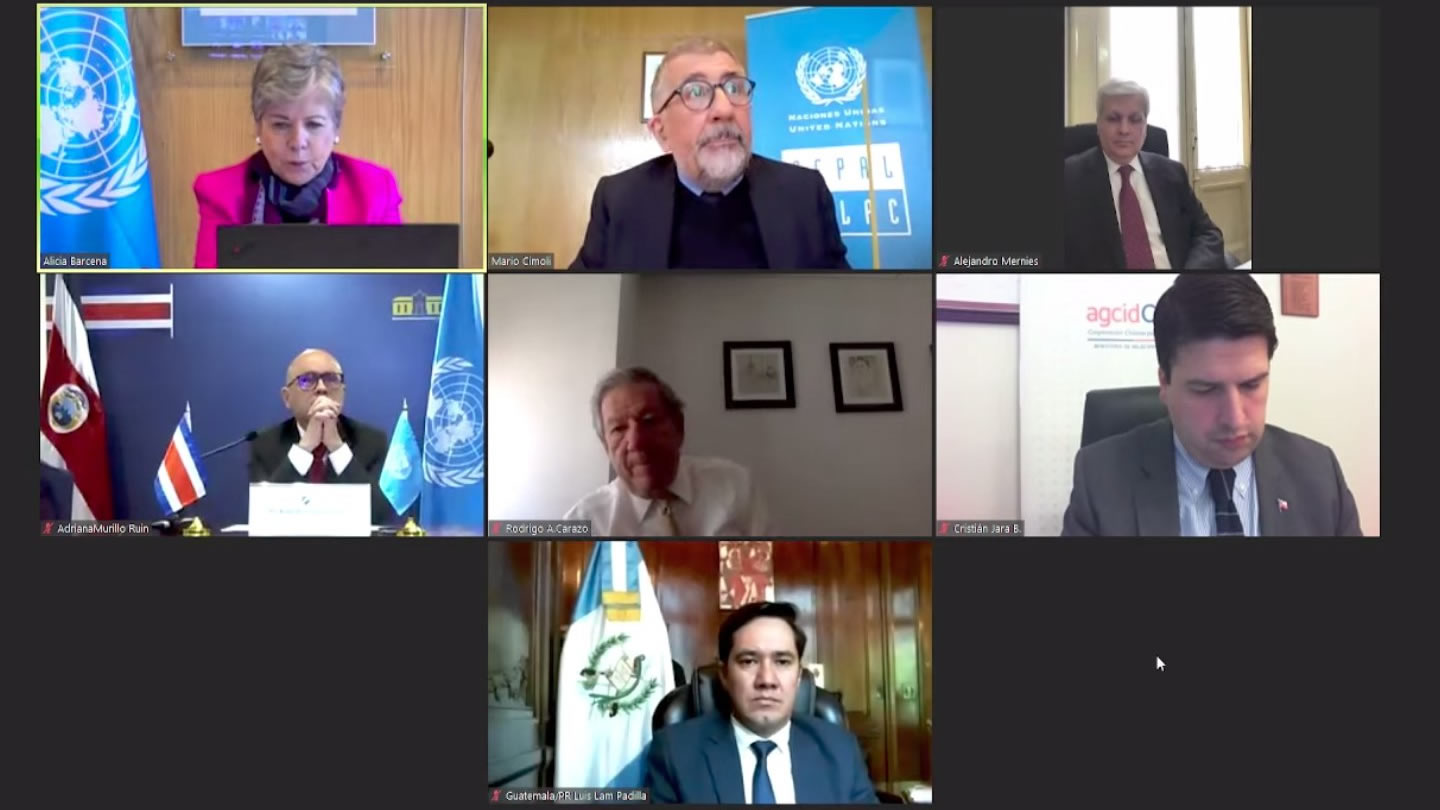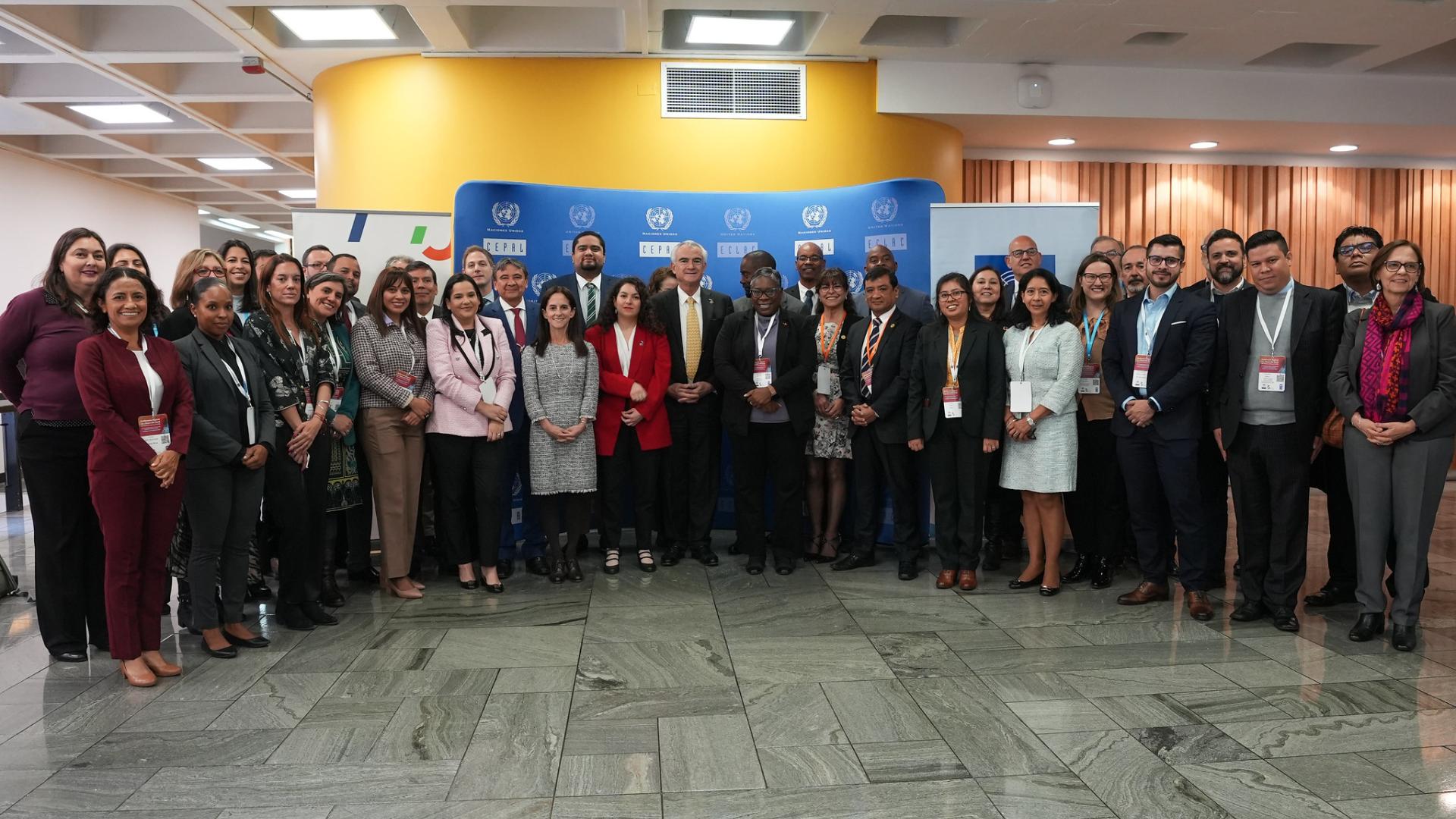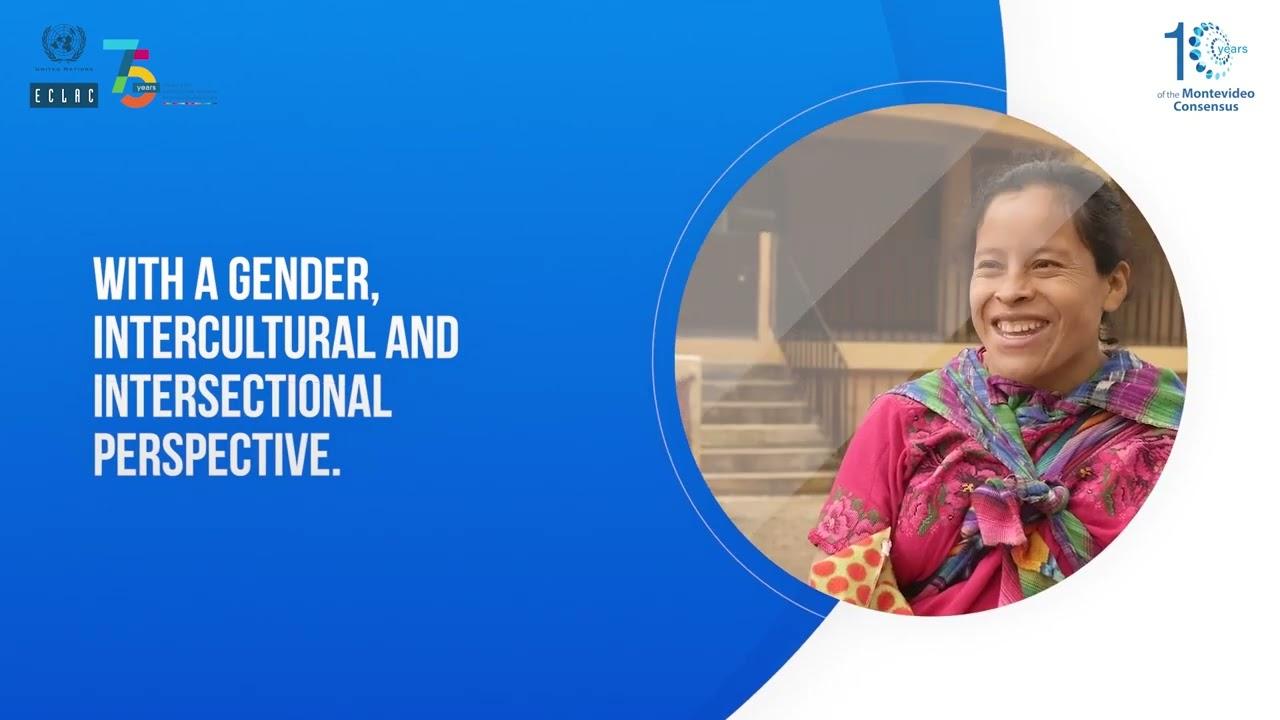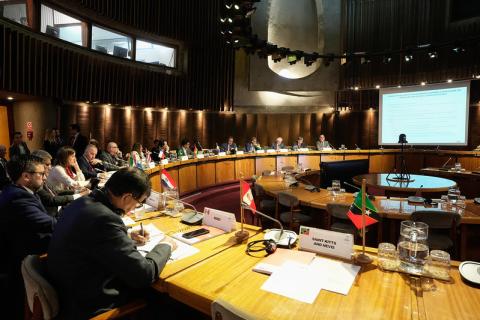Briefing note
Authorities from Latin America and the Caribbean along with international officials posed the urgency of renewing international cooperation on the basis of a multidimensional measurement of development, which would take into account the structural gaps that middle-income countries face, during a virtual event organized by the Government of Costa Rica and the Economic Commission for Latin America and the Caribbean (ECLAC) on the sidelines of the High-level Political Forum on Sustainable Development 2021.
The virtual event entitled Multidimensional measurements of development: opportunities for renewed cooperation was inaugurated by Rodolfo Solano Quirós, Minister of Foreign Affairs and Worship of Costa Rica, and Alicia Bárcena, ECLAC’s Executive Secretary, who presented the working document Opportunities for renewed cooperation in Latin America and the Caribbean. Development in Transition: Building the concept and its measurement, which the Costa Rican government had requested and the final edition of which will include the comments formulated by countries after the event.
In addition to expressing gratitude for the report, which he described as “a tool for decision-making,” Foreign Minister Rodolfo Solano Quirós stated that today more than ever, Latin American and Caribbean countries need to plan the coming years jointly and on the basis of solidarity. The region is taking decisive steps forward in the quest for a change of approach, one that would recognize countries’ objective realities to achieve true development, he said.
“The development in transition concept seems to us to be well-suited to building a more effective measurement of development, a multidimensional measurement that reflects and appropriately addresses each country’s particularities and needs, because we firmly believe that its application can lay the foundation for a fairer and more effective distribution of international cooperation resources for development, in the spirit of renewed global solidarity,” he declared.
In her remarks, Alicia Bárcena indicated that “international cooperation has been and is a driving force of economic and social advancement in a large share of the world’s countries. Renewing international cooperation is fundamental for achieving more inclusive and sustainable development for all the inhabitants of Latin America and the Caribbean.”
ECLAC’s Executive Secretary recalled that Latin America and the Caribbean is a middle-income region that is undergoing a process of transition to development, which still has important structural gaps and has been one of the regions hardest hit by the health crisis, and its economic and social effects. The high indebtedness and reduced fiscal space of the region’s countries is not only endangering the continuance of emergency plans in response to the pandemic, but also the attainment of the 2030 Agenda’s Sustainable Development Goals (SDGs), she warned.
In that context, the senior official insisted that per capita income is an insufficient measure for evaluating the progress of countries in terms of development, well-being and sustainability. That is why ECLAC has developed an analytical framework based on the concept of “development in transition,” which takes into account the traps and structural gaps faced by middle-income countries, such as those in Latin America and the Caribbean.
The objective is to put this proposal at the service of the international community for defining the criteria used to grant international financing for development, she explained.
During her presentation, Bárcena detailed the numerous direct and indirect, financial and non-financial effects prompted by countries’ graduation from Official Development Assistance (ODA). Six countries in the region have already graduated as potential recipients of these resources (The Bahamas, Barbados, Chile, Saint Kitts and Nevis, Trinidad and Tobago, and Uruguay), and another two are expected to do so in 2022 (Antigua and Barbuda and Panama), she noted.
ODA continues to be important for many of the region’s countries, despite their per capita income level, she stressed. It represented 34% of the financial flows received by the Caribbean in 2019. And in countries like Saint Vincent and the Grenadines and Dominica, it amounts to 10.3% and 9% of GDP, respectively.
“New forms of cooperation must address cross-cutting issues, such as the care economy, consider industrial policies to create economies of scale, and above all, they must expand the toolbox, including financing instruments and climate funds,” Bárcena sustained.
After her presentation, a high-level panel discussion was held with remarks by Cristián Jara, Executive Director of the Chilean International Cooperation for Development Agency (AGCID); Alejandro Mernies, Director General of International Cooperation of the Ministry of Foreign Affairs of Uruguay; Pedro Brolo, Minister of Foreign Affairs of Guatemala, in its capacity as Chair of the Like-Minded Group of Countries Supporters of Middle-Income Countries (by video); and Rita Hernández, Director of International Cooperation at the Ministry of Foreign Affairs and Worship of Costa Rica, in its capacity as Chair of the Committee on South-South Cooperation of ECLAC – all of whom also thanked the Commission for drafting the report. Mario Cimoli, ECLAC’s Deputy Executive Secretary, acted as the moderator.
Guatemalan Foreign Minister Pedro Brolo indicated that “in 2021 we assumed the chairmanship of the Group of Friends of middle-income countries in the United Nations, a space that has allowed us to contribute to the global debate for reformulating the multilateral structure in support of developing countries, which should be based on multidimensional criteria, including factors of vulnerability and risk along the three dimensions of sustainable development: economic, social and environmental.”
Alejandro Mernies, of Uruguay, reinforced that there is an “imperative need to rethink international cooperation for development, to leave the traditional model behind and advance decidedly towards a comprehensive international cooperation system, without exclusions.” The development in transition concept is critical within this framework, he added.
Cristián Jara, Executive Director of AGCID, said that ECLAC’s proposal is “a substantive contribution to the challenge we have as a region to unify our terminology and take a common stance,” adding that it presents an in-depth analysis of the current state of cooperation in Latin America and the Caribbean. “Graduation has an economic, and also multidimensional, impact on countries,” he emphasized.
Meanwhile, Rita Hernández, of Costa Rica, stressed that in the framework of the development in transition paradigm, it is indispensable to define long-term strategies for supporting countries, through innovative cooperation instruments that would avert a crisis in resources for development. In addition, she reviewed the initiatives carried out by her country as Chair of ECLAC’s Committee on South-South Cooperation.
Finally, Alicia Bárcena underscored that “cooperation should include all countries, beyond their income level, based on their problems and opportunities, recognizing their national strategies, being flexible to respond to uncertainty, recognizing the commitment and participation of countries transitioning to development, ensuring access to concessional finance for all middle-income countries, especially the smallest economies, and recognizing the regional perspective for strengthening cooperation and its shared positions vis-à-vis the multilateral world.”



